Blogtober 2021 : Day 4
Not so small daughter didn’t really fancy going into school today and I can’t say that I really blame her. I think we’d all like to spend a bit longer in bed on a Monday morning, wouldn’t we? “But I’ve got English! And it’s poetry!” she said, as if that was going to make me change my mind about her having to get up.
To be fair, the poetry section of GCSE English isn’t overly exciting and the selection of twelve various war poems that were originally in the syllabus would not have filled me with enthusiasm either, but currently it looks like they are going to be taken out of the exam for next year rather than replaced with poems about Covid which apparently was one suggestion. How awful! I think that would be even more depressing and quite traumatic for some people too. My favourite poems are Macavity: The Mystery Cat by TS Eliot, When Daddy Fell Into the Pond by Alfred Noyes and Colonel Fazackerley Butterworth-Toast by Charles Causley, none of which are probably ever going to be on a GCSE syllabus but all of which I think are exactly what poetry is about. I can see that cat so clearly in my mind’s eye, and the wet Dad, and the Colonel makes me hoot with laughter even now.
Anyway, once not so small daughter had been dropped off at school (yes, yes, it would be quite safe for her to get the bus now, I am sure, but it suits us both to still do the school run), the dog and I headed off to the Sankey Canal to walk along the towpath. We saw the swan family heading towards us in a stately manner, but we stayed a good distance away. The dog forgets that they don’t want him to say hello.

Instead, we headed in the opposite direction. There’s a fisherman under an umbrella not far past the swans and fishermen don’t want the dog to say hello either 🙂
It was obviously the day for waterfowl as the canal on this side was full of ducks. These ones were all in Mr and Mrs Mallard pairs, leaving silver trails in the water as they swam.
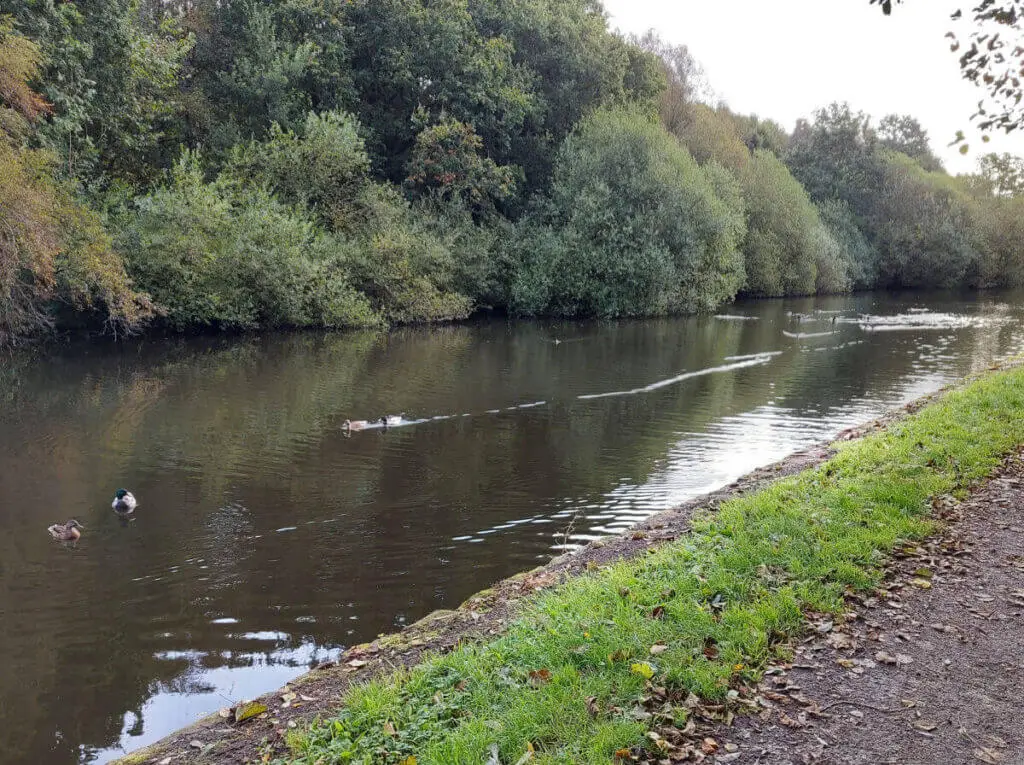
I don’t mind so much if the dog goes to say hello to these ducks – they all see him coming and launch themselves into the water away from him but the swans don’t do that and it’s always best to keep him out of the way. Look at them all! It was like a duck convention! We saw more groups of them after this too!

The water was quite clear on this section of the canal but it definitely wasn’t further up!
That green stuff isn’t grass but duckweed. When I was little – I’ve probably told you this before – I was always told it was called “Ginny Greenteeth” after the witch that lived under the water and you should stay away as the water was deep and you’d be pulled under. As a tale to keep small children away from deep water, it worked pretty well!

“Don’t go in there,” I told the dog. “That’s deep water and Ginny Greenteeth lives in there”.
The dog was his usual obedient self.

Luckily, Ginny Greenteeth didn’t catch him but there was something in the water that disturbed the surface of the pondweed and left a large hole in it.

Honestly, I’ve invented some kind of Loch Ness monster for this canal now! It will have been a fish of some sort – there was a very large dead fish in the middle of the canal that I think might have been a carp as I know they are in there so presumably whatever it was will have been something like that. I still walked on quite quickly!
On our way back, I noticed how much Himalayan balsam was still in flower. This is another of those plants that was brought back to the UK by the enterprising Victorians in 1839 who have much to answer for in terms of invasive plant species and animal extinction.

It might look harmless enough with it’s pretty pink flowers but it grows very tall and blocks out the light for the plants underneath, and those seed pods (you can see them in this photo just behind the flower, those green dangly things) explode with hundreds of seeds when they are ripe and that’s how it manages to spread so rapidly.
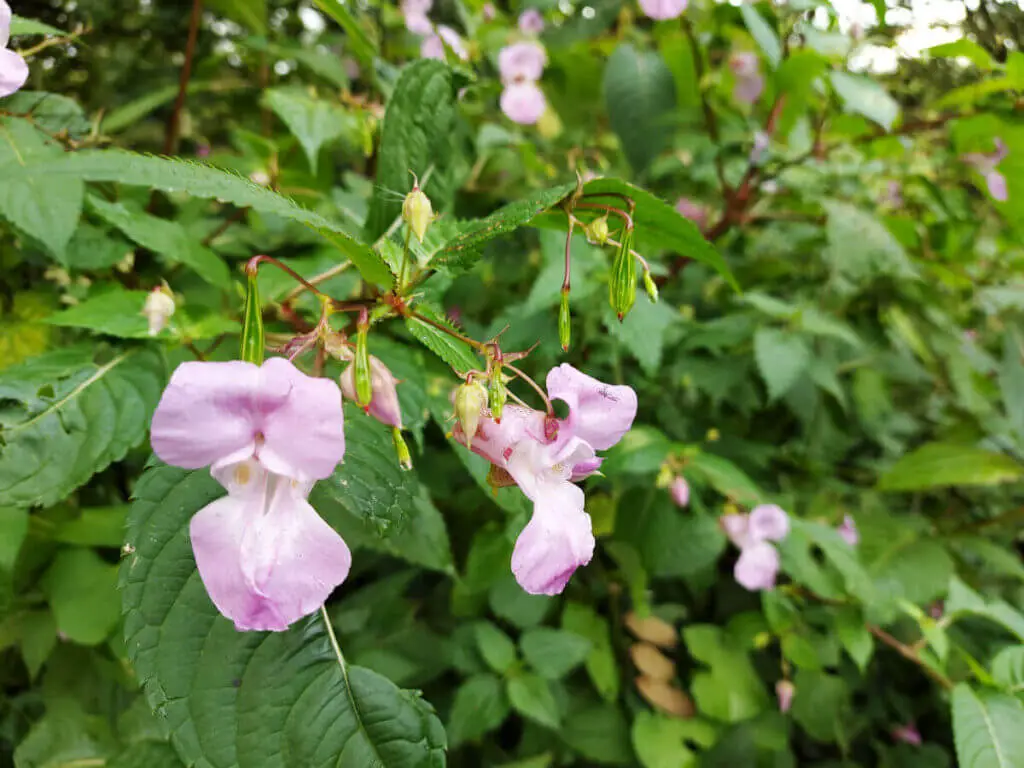
When we got back to where the car was parked, the swans had got out onto the bank and the fisherman was still there. They stay all day, all set up in little camps with drinks and stoves and radios. Some of them have tents with camp beds in them; it must be a very pleasant way to spend the day if fishing is your thing!

Back home, I thought about not so small daughter and her poetry briefly as I read a few pages of my new book. It’s called The Marlow Murder Club by Robert Thorogood, who also wrote a TV series called Death In Paradise. I used to work in Marlow a looong time ago so as well as the blurb appealing to me, I chose the book for nostalgic reasons too. I met one of my best friends when I was working at that job and she’s still an important part of my life now.

I’m not very far into it but the genre seems to be similar to that of The Thursday Murder Club by Richard Osman which I enjoyed a while ago, and also the Agatha Raisin novels by MC Beaton – I enjoyed these far more than the TV programme; they’re written by the author of the Hamish Macbeth novels which were also on TV a long time ago.
Thank you for your comments about Sunday dinner yesterday, we’re having jacket potatoes tonight as we’re getting to that time of year when the lovely big potatoes are coming into the shops. I cook them for a long time in the Aga and they are just delish!
See you tomorrow! xx

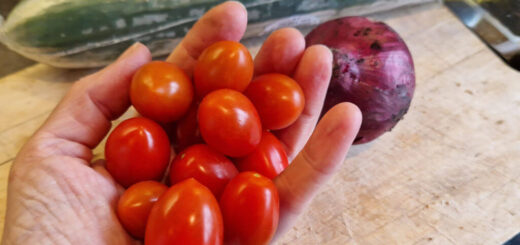


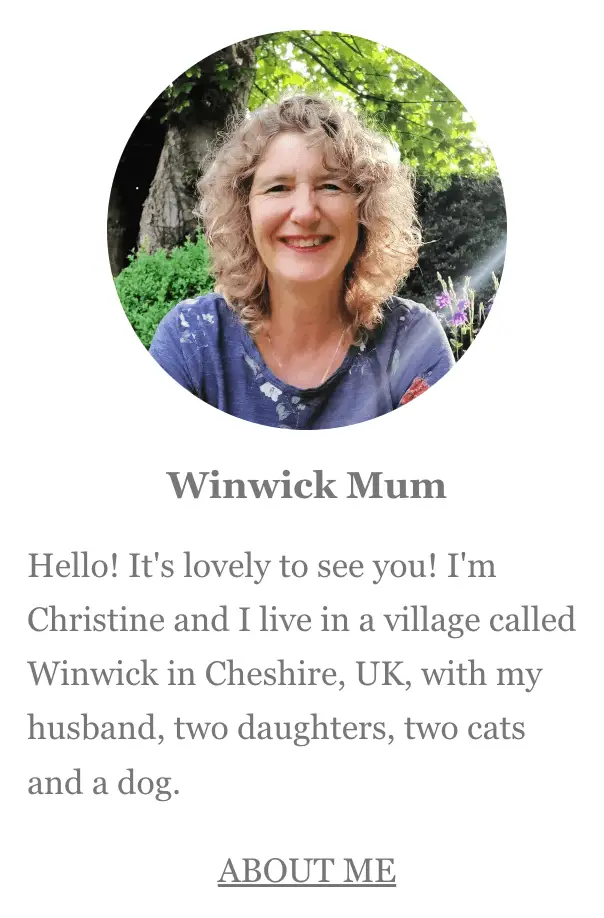






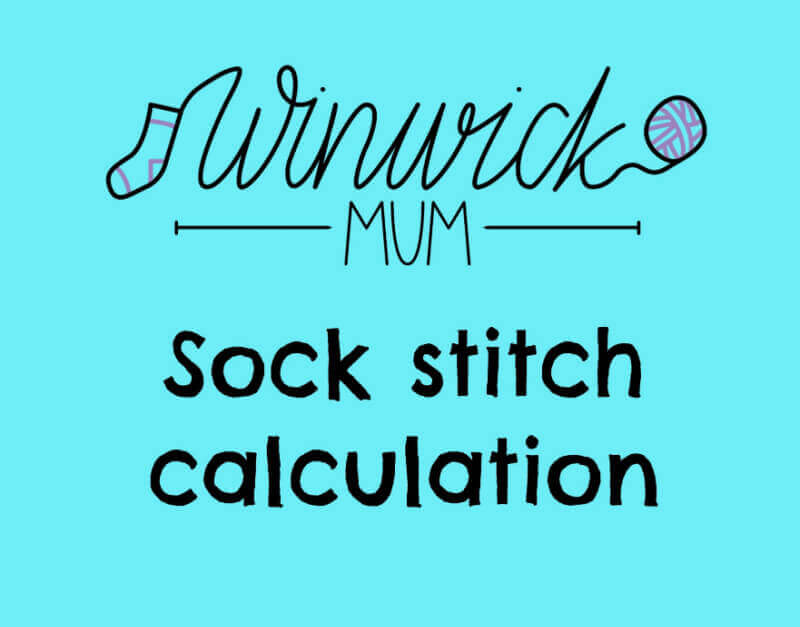


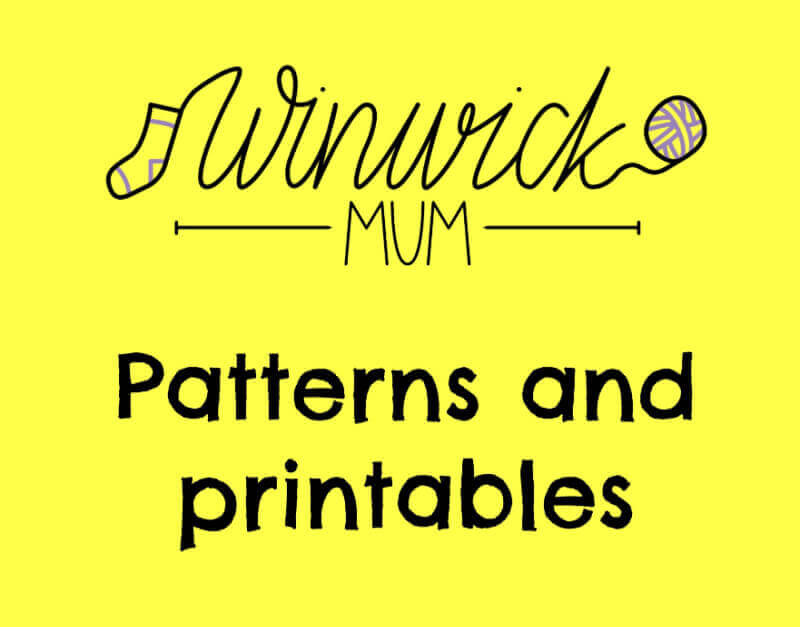











Smallest daughter is in her GCSE year and is of one mind with yours regarding the poetry! Science is more her thing.
I’ve always liked English and poetry far more than science but I’m afraid the war poets just don’t do it for me. I hope your smallest is getting on OK, it’s been a tough time for them! xx
She is, thanks! She coped well with being home and her school has done an excellent job all through the pandemic, so we have been pretty lucky. Hope your daughter is OK and not too stressed by the whole GCSE thing.
That’s great news! Mine isn’t too worried by GCSEs at the moment – but there’s time for that to change! xx
I’m loving the daily news from Winwick, it sounds like you had a good day inside and out xxxxxxxx
It wasn’t bad at all, thank you! 🙂 xx
I used to read poetry to our girls when they were young. We loved Macavity, but the other two are new to me. Thank you for brightening my evening!
Where I used to work, we had Balsam Bashing evenings to get it under control. Where you walk looks lovely, whatever the weather.
I think there are quite a few people who do Balsam Bashing as there are often plants pulled up by the roots and scattered around. I don’t know if it will be tamed though, those seed pods have quite a range! I’m glad you enjoyed the poems 🙂 xx
I used to live near Marlow and thoroughly enjoyed that book.
It’s a lovely part of the world, isn’t it? xx
Yes it is, I must visit soon
I’m across the pond , what’s an Aga? (And we try to do a Sunday dinner …during the summer that usually means grilling , and in the cooler months it’s often a crock pot or oven meal.)
An Aga is a stove that stays on all the time and I love it! This post will introduce you to mine 🙂 xx
Wow! Interesting! I’ve never seen one. (Love the blue !) Thanks for sharing that.😀
Loving your daily blogs, Christine, thank you! I loved English language and literature at school but found the set books, plays and poems tended to be angled at boys – Dickens, George Orwell and the war poets. Shakespeare was OK but even some of them were a bit macho – Macbeth, Othello, King Lear! I wonder whether that was because in the 1960’s boys weren’t great readers after about 13 (as nowadays) so they tried their best to encourage them? Is it that girls will always read? Book clubs it seems are mainly made up of women. I’ve read both Marlow Murder Club and Thursday Murder Club and enjoyed them both, as I am sure you will.
That’s an interesting thought! I had assumed it was because a lot of the set texts are “classics” and women weren’t allowed to be published under their own names for a long time – it will be good to see what happens to exam texts in the future! xx
I love Colonel Fazackerley-Butterwoth-Toast too. I won a “talent” contest at youth club (many, many moons ago) by reciting that! Look up Maverick Prowles by Spike Milligan. I still know it off by heart and it still makes me laugh.
I haven’t read that one so I had to look it up – it’s classic Spike Milligan, isn’t it? Poor Maverick Bowles! I love that you won a talent contest with the Colonel 🙂 xx
Really enjoying your daily blogs. I also really enjoy the Agatha Raisin books and they are far better than the TV version – just can’t get into those. Also enjoyed The Thursday Murder Club and have put the Marlow Murder club on my ‘to read’ list. Thank you 😊
I don’t know what it was about the TV version but it just didn’t work for me! There was an adaptation on Radio 4 many years ago and I enjoyed that (I was decorating and it was my first encounter with Agatha Raisin), but the books made me laugh. I like how she’s quite the anti-hero! 🙂 xx
Macavity The Mystery Cat is one of my favourite poems. We read it in English class when I was a girl many moons ago. I think that is why it is one of my faves. We had to study a war poem too but I seem to have blocked that one out. It had a latin title. I’m a scientist who likes poetry 🙂
I think I have blocked all the war poems I had to read at school out as well. And why not be a scientist who likes poetry? There’s order in the words and the rhythm that is very scientific if you choose to look at it that way, I think 🙂 xx